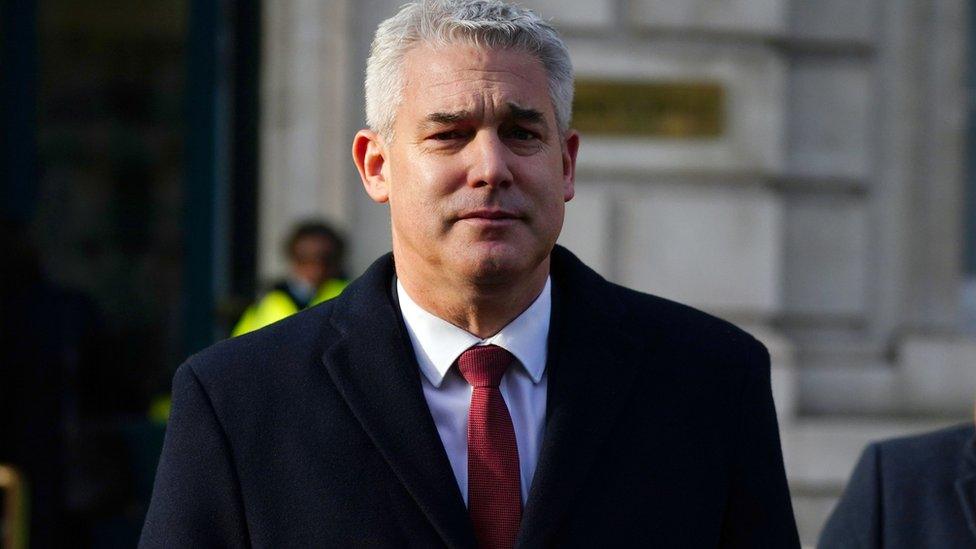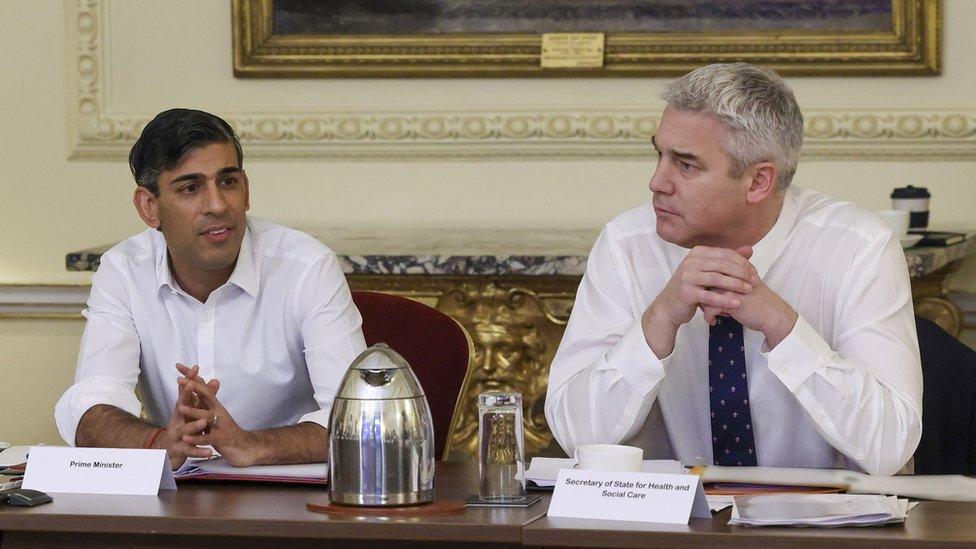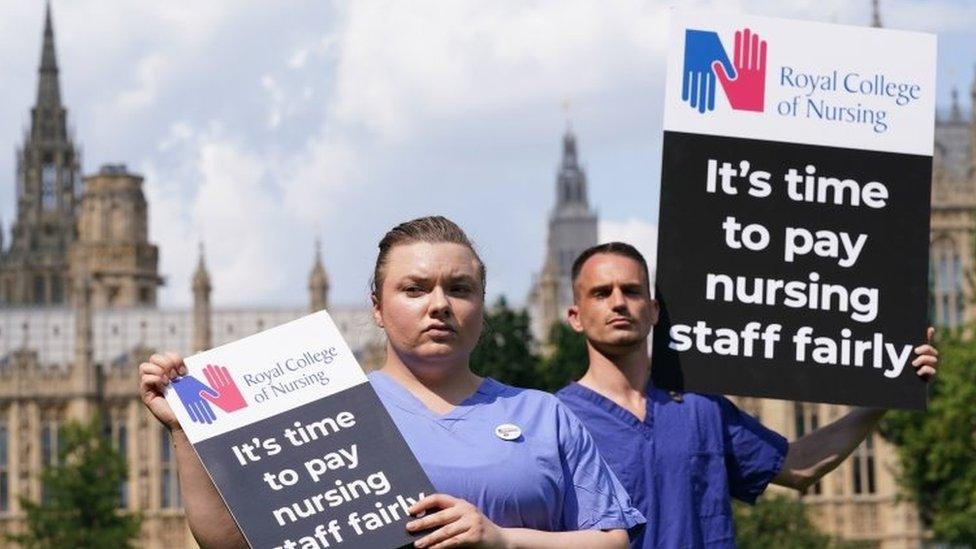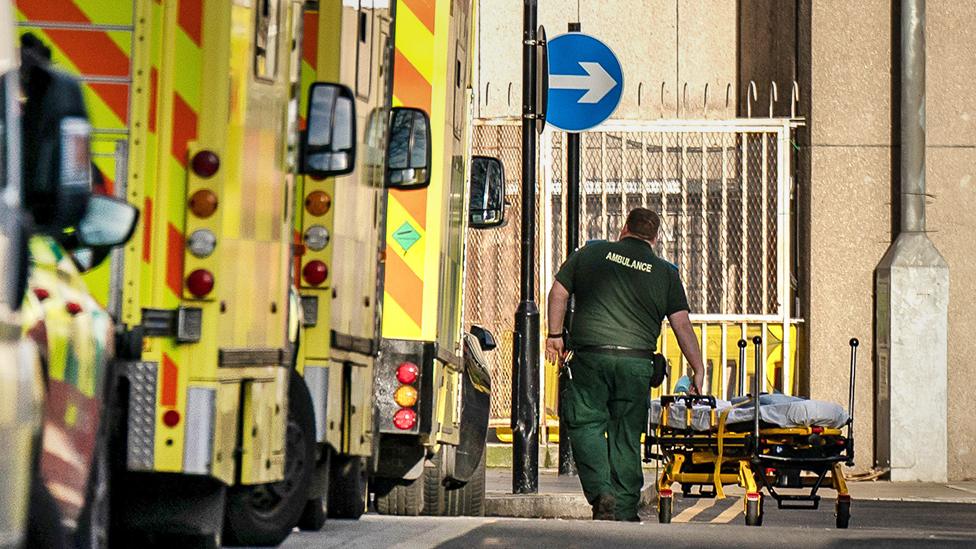NHS pay dispute: Health secretary hints at pay boost offer to unions
- Published

Steve Barclay is in his second spell as health secretary
Health Secretary Steve Barclay has suggested health workers could get a bigger pay rise in April - if they agree to "efficiencies" in the NHS.
Writing in the Sunday Telegraph, , externalMr Barclay said he remains "ready to engage" with striking unions on how the government can "support the workforce".
The NHS has seen widespread strikes in a dispute over this year's pay offer.
Union leaders say ministers must act on the current dispute, and this month's walkouts will go ahead.
Meanwhile, shadow health minister Andrew Gwynne said a decade of underfunding by Tory governments had stretched the NHS.
It comes a day after health leaders held talks with the government about tackling the challenges faced by the NHS - which Prime Minister Rishi Sunak described as "highly valuable".
On Monday, health unions have been invited to meet Mr Barclay to discuss pay for 2023-24 from April - and in his Telegraph opinion piece he argued "we should be moving forward and having constructive conversations about what is affordable this coming year, rather than going back retrospectively".
But speaking to the BBC's Today programme on Saturday, Royal College of Nursing General Secretary Pat Cullen said the pay increase nurses would receive in 2022-23 was "fundamental" to the ongoing dispute.
NHS staff in England and Wales - including nurses - have been given an average pay rise of 4.75% this year but are calling for an increase to keep up with inflation, which is currently running at more than 10%.
Ambulance workers are set to walk out again this week, and nurses later in the month. And from Monday, junior doctors in England will be balloted on strike action.
Mr Barclay - who was reappointed as health secretary by Mr Sunak in October after a short spell earlier in the year - admitted the recent strikes had disrupted the health service, causing more than 30,000 appointments to be rescheduled.
"While those who kept working did a formidable job - supported brilliantly by our armed forces - we know the quality of care patients received suffered as a result," he said.
He also said the government's plans to introduce new legislation to ensure minimum levels of staff in emergency services was "pragmatic", and would be similar to actions taken in countries such as France and Germany.
However, he also hinted at space for negotiation with the unions, saying he was keen to hold talks to see if a settlement could be agreed on any revised pay offer.
He described a recent visit to one of the 42 new NHS system control centres that use live hospital data and digital notifications to ensure the typical time a bed remains empty is being cut from three hours to one hour.
He said that when the NHS trusts can find and widely introduce "productivity and efficiency opportunities" that would make it "affordable" for the government to fund revised pay offers for staff.
Acknowledging challenges within the health service, Mr Barclay also said he would make an announcement on Monday to "improve the flow through our hospitals".
"This is the kind of work we're determined to keep doing, fixing people's problems and taking the country forward, rather than being stuck on repeat with the unions," he said.
Related topics
- Published7 January 2023

- Published2 May 2023

- Published6 January 2023

- Published6 January 2023

